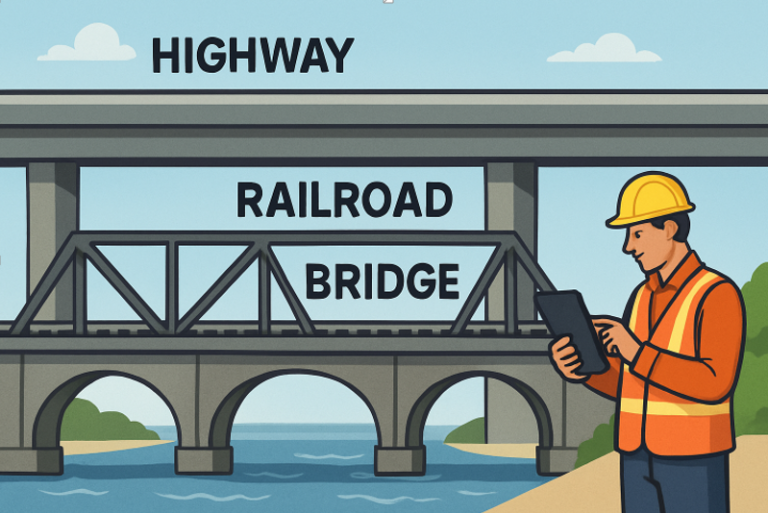The Dark Side of Movers in Chester, VA: What They Don’t Tell You About Hidden Fees

Unmasking the Initial Quote: What’s Really Included?
The Deceptive Lowball Offer
It’s tempting, I know. You see a moving company advertising super-low prices, and you think you’ve hit the jackpot. But hold on a second. That initial quote might be a ‘lowball’ – an unrealistically low estimate designed to hook you in. Once they’ve got your stuff loaded, they can hit you with extra charges you never saw coming. It’s like when you see a cheap flight, and then the baggage fees, seat selection, and taxes triple the price. Watch out for quotes that are significantly lower than other companies; it’s a major red flag.
Understanding the Fine Print of Estimates
Estimates aren’t all created equal. Some are ‘binding,’ meaning the price you’re quoted is the price you pay (unless you add services). Others are ‘non-binding,’ which means the final cost can change. And then there are ‘guaranteed-not-to-exceed’ estimates, which offer some protection. Always, always read the fine print. I mean really read it. Look for clauses about weight, distance, and any potential extra fees. Don’t be afraid to ask the moving company to explain anything you don’t understand. It’s better to ask questions upfront than to get a nasty surprise later.
Why Hourly Rates Can Be Misleading
Hourly rates can seem straightforward, but they can quickly spiral out of control. What seems like a good deal can turn into a budget buster if the move takes longer than expected. Movers might work slowly, take excessive breaks, or ‘pad’ the time to increase the bill. Plus, travel time to and from your place is often included in the hourly rate.
It’s a good idea to get a fixed-price quote whenever possible. If you have to go with an hourly rate, get a realistic estimate of how long the move should take, and keep a close eye on the movers chester va to make sure they’re working efficiently. Document everything, including start and stop times, and any breaks they take. This can be helpful if you need to dispute the final bill.
The Hidden Costs of Packing and Materials
Moving is already expensive, but the costs associated with packing and materials can really add up. It’s easy to underestimate how much you’ll need, and some movers take advantage of this. Let’s break down some of the sneaky ways these costs can inflate your final bill.
Exorbitant Box and Tape Charges
Movers often charge way more for boxes and packing tape than you’d pay at a store. They know you’re in a bind and might not have time to shop around. It’s a classic upselling tactic. I remember one time, I was charged $8 for a single roll of tape that I could have gotten for $3 at Walmart. It’s those little things that really sting.
Here’s a quick comparison of typical moving company vs. retail prices:
| Item | Moving Company Price | Retail Price |
| Small Box | $5 | $2 |
| Medium Box | $7 | $3 |
| Large Box | $9 | $4 |
| Packing Tape | $8 | $3 |
Unexpected Fees for Specialty Items
Think you’re all set with regular boxes? Think again. Movers often slap on extra fees for “specialty items.” Things like wardrobe boxes, mirror boxes, or custom crates can come with surprisingly high price tags. They might not tell you about these fees upfront, and you’ll only see them on the final bill. I’ve heard stories of people being charged $50+ for a single wardrobe box. It’s crazy!
The ‘Mandatory’ Packing Service Upsell
Some moving companies will try to pressure you into using their packing service, even if you’d rather do it yourself. They might claim it’s “mandatory” for insurance purposes or that they can’t guarantee the safety of your belongings if you pack them yourself. This is often a scare tactic to get you to spend more money. The labor costs for packing can be significant, easily adding hundreds or even thousands of dollars to your bill.
Always ask if packing services are truly required or just an option. Get it in writing! If they insist on packing, get a detailed estimate of the packing costs before they start. Don’t be afraid to push back and say you’ll handle the packing yourself if you’re comfortable doing so.
Here are some things to consider before agreeing to a packing service:
- Your budget: Can you afford the extra cost?
- Your time: Do you have enough time to pack yourself?
- Your physical ability: Are you able to lift and pack boxes?
- The value of your items: Are you comfortable packing fragile or valuable items yourself?
Navigating Access and Property Surcharges
It’s easy to overlook the extra charges that can pop up based on where you’re moving from or to. These aren’t always obvious at first, but they can add a significant chunk to your final bill. Let’s break down some common access and property surcharges to watch out for.
Stair Carry Fees You Didn’t Expect
Think you’re all set because you have an elevator? What if it’s out of service on moving day? Or maybe your new place is on the third floor with no elevator at all. Movers often charge extra for each flight of stairs they have to navigate. These fees can really add up, especially if you have heavy furniture or a lot of boxes.
Here’s a hypothetical example of how stair carry fees might be structured:
| Flight of Stairs | Fee per Mover | Total Fee (3 Movers) |
| 1 | $20 | $60 |
| 2 | $40 | $120 |
| 3 | $60 | $180 |
Make sure to clarify the stair carry policy with your movers beforehand. Ask if there’s a limit to the number of flights they’ll charge for, or if there are any exceptions.
Long Haul Charges for Short Distances
This one can be tricky. Even if you’re only moving a few blocks, movers might impose a “long haul” charge if they have to park far away from your building and carry your belongings a significant distance. This is more common in urban areas with limited parking. It’s basically a fee for the extra time and effort it takes to move your stuff from the truck to your door.
Consider these factors that could trigger a long haul charge:
- Limited street parking near your building
- Parking restrictions during certain hours
- The need to use a loading dock that’s far from your unit
Elevator Use and Parking Permit Penalties
If your building requires movers to reserve the elevator or obtain a parking permit, you might be on the hook for those costs. Some buildings charge a fee for elevator use, while others require a refundable deposit to ensure the elevator is not damaged during the move. Parking permits can also be expensive, especially in densely populated areas. Make sure to check with your building management about these requirements and factor them into your moving budget.
It’s always a good idea to walk through your moving route with the movers beforehand. Point out any potential obstacles, like narrow hallways, tight corners, or long distances from the parking area to your front door. This can help them anticipate any challenges and give you a more accurate estimate of the final cost.
Surprise Fees for Unforeseen Circumstances
Moving day is stressful enough without unexpected costs popping up. Sometimes, things happen that are truly out of anyone’s control, but some movers use these situations as an excuse to tack on extra charges. It’s important to be aware of these potential pitfalls so you aren’t caught off guard.
Weather Delays and Their Financial Impact
Bad weather can definitely throw a wrench into moving plans. While no one can control the weather, some moving companies will charge you extra if a storm causes delays. This could be for things like the crew having to wait it out, or for extra days of truck rental. It’s a good idea to ask about their policy on weather-related delays before you book. Some companies might have a clause in their contract that protects them (and charges you) in these situations.
Rescheduling Penalties and Cancellation Traps
Life happens, and sometimes you need to reschedule your move. But be careful! Many movers have strict policies about rescheduling or canceling, and they can hit you with hefty penalties. These fees can range from a percentage of your total estimate to a flat fee. Always read the fine print regarding cancellations. Some companies require a notice weeks in advance to avoid penalties. Here’s a quick example:
| Notice Given | Cancellation Fee |
| 30+ days | $0 |
| 15-29 days | 25% of estimate |
| Less than 14 days | 50% of estimate |
The ‘Difficult Item’ Surcharge
This is where things can get really subjective. A “difficult item” surcharge is basically a fee for moving something that the movers deem to be particularly challenging. This could be anything from a piano to a large piece of furniture, or even just boxes that are considered too heavy. The problem is, what one mover considers “difficult,” another might not. Always ask for a clear definition of what qualifies as a “difficult item” and get a written estimate for any potential surcharges before they even load the truck. Otherwise, you might be in for a nasty surprise when the bill comes.
It’s always a good idea to take pictures of your belongings before the move. This can help you dispute any claims that items were more difficult to move than initially assessed. Also, document any communication with the moving company regarding potential surcharges. This way, you have proof of what was agreed upon.
Insurance Scams and Damage Liability
Moving is stressful enough without having to worry about insurance issues and damage claims. It’s an area where some movers, unfortunately, try to take advantage of customers. Let’s break down what you need to know to protect yourself.
Basic Coverage Versus Comprehensive Protection
Movers are required to offer a minimal level of coverage, often called “released value protection.” This is usually very cheap, but it only covers items at a rate of something like 60 cents per pound. So, if your expensive TV gets smashed, you might only get a few bucks for it. Comprehensive protection, on the other hand, covers the actual replacement value of your items, but it costs more. Make sure you understand the difference and choose the level of protection that makes sense for your belongings.
The Deductible Dilemma
Even with comprehensive coverage, you’ll likely have a deductible. This is the amount you have to pay out of pocket before the insurance kicks in. What some movers don’t tell you is that the deductible can sometimes be surprisingly high, making it not worth filing a claim for smaller damages. Always ask about the deductible amount before you sign anything. It’s also worth checking if the deductible applies per item or per claim. A per-item deductible can really add up.
Disputed Damage Claims and Your Rights
So, something got broken. You filed a claim. Now what? Sometimes, movers will try to deny or undervalue your claim. Here’s where things can get tricky.
- Document everything with photos and videos.
- Keep all communication with the moving company in writing.
- Know your rights under Virginia law.
If you feel like you’re getting the runaround, don’t be afraid to escalate the issue. Contact the Better Business Bureau, file a complaint with the Virginia Department of Motor Vehicles (DMV), or even consult with an attorney. It’s your stuff, and you deserve fair treatment.
Here’s a quick example of how claim payouts might differ:
| Item | Weight (lbs) | Replacement Value | Released Value Payout ($.60/lb) | Comprehensive Payout (minus $250 deductible) |
| Flat Screen TV | 50 | $800 | $30 | $550 |
| Sofa | 200 | $1500 | $120 | $1250 |
| Table Lamp | 10 | $150 | $6 | $0 (below deductible) |
Post-Move Billing Shock: The Final Invoice
Moving is stressful enough, but the real fun often begins when you get that final invoice. It’s like opening Pandora’s Box – you never know what surprises are lurking inside. You think you’re done, but then BAM! Unexpected charges pop up, turning your budget upside down. Let’s break down what to watch out for.
Itemized Charges That Appear Out of Nowhere
Ever feel like you’re reading a foreign language when you look at your final bill? It’s common to see charges for things you never discussed or agreed to. These can range from “fuel surcharges” that seem suspiciously high to fees for “handling” items that you thought were already covered. Always scrutinize every line item.
Discrepancies Between Quote and Bill
This is where things get really frustrating. You had a quote, maybe even a binding one, but the final bill is way higher. Movers might claim the weight was more than estimated, or that they encountered unforeseen difficulties. It’s important to compare the original quote with the final invoice, line by line. If there are differences, ask for a detailed explanation. Don’t be afraid to push back if the explanation doesn’t make sense.
Strategies for Contesting Overcharges
Okay, so you’ve found some questionable charges. What now? First, document everything. Keep copies of your quote, inventory list, and any communication with the moving company. Then, write a formal letter (or email) outlining the discrepancies and why you believe they are incorrect. Be polite but firm. If the moving company is unresponsive, consider filing a complaint with the Better Business Bureau or your state’s consumer protection agency. Sometimes, just the threat of legal action can get them to reconsider.
It’s important to remember that you have rights as a consumer. Don’t let moving companies bully you into paying charges you don’t owe. Be persistent, and don’t give up until you get a fair resolution.
Here’s a simple table to help you organize your dispute:
| Charge | Quoted Amount | Billed Amount | Explanation | Action Taken |
| Packing Materials | $100 | $250 | Claimed extra boxes | Contacted manager |
| Fuel Surcharge | $50 | $150 | Unexplained increase | Filed complaint |
| Stair Carry Fee | $0 | $75 | Not mentioned in quote | Refused to pay |
And here are some steps to take when contesting overcharges:
- Review all documents carefully.
- Contact the moving company in writing.
- Keep records of all communication.
Protecting Yourself from Unscrupulous Movers in Virginia
Moving can be stressful, but it doesn’t have to be a nightmare. There are steps you can take to protect yourself from shady movers in Virginia, including those operating in Chester, VA. It’s all about doing your homework and being proactive. Don’t just jump at the first low price you see; that’s often a red flag.
Verifying Licensing and Insurance
First things first: make sure any movers in Virginia you’re considering are properly licensed and insured. This is non-negotiable. The Virginia Department of Motor Vehicles (DMV) handles licensing for movers. You can check their website to verify a company’s credentials. Insurance is equally important; it protects you if your belongings are damaged or lost during the move. Don’t just take the mover’s word for it – ask for proof of insurance and verify it with the insurance company directly. For commercial moving company, this is even more important, as the stakes are higher.
Reading Online Reviews Critically
Online reviews can be a goldmine of information, but you need to read them with a critical eye. Look for patterns. A few glowing reviews mixed with a bunch of negative ones might indicate fake reviews. Pay attention to what people are saying about specific issues, like hidden fees, damage to property, or unprofessional behavior. Also, check multiple review sites, such as:
- Better Business Bureau (BBB)
- Yelp
- Google Reviews
Remember that even legitimate companies will have some negative reviews. It’s how they respond to those reviews that matters. Do they address the concerns professionally and try to resolve the issue? That’s a good sign.
Getting Everything in Writing Before You Move
This is probably the most important piece of advice: get everything in writing. I mean everything. This includes:
- A detailed estimate of all costs, including potential extra charges.
- A complete inventory of your belongings.
- The agreed-upon dates for pickup and delivery.
- The mover’s liability in case of damage or loss.
Don’t rely on verbal agreements. If it’s not in writing, it didn’t happen. Before signing anything, read it carefully and make sure you understand all the terms and conditions. If you have any questions or concerns, don’t hesitate to ask the movers to clarify. If they’re unwilling to put things in writing or answer your questions, that’s a major red flag, and you should probably look for a different moving company in Chester, VA.
Wrapping Things Up
So, there you have it. Moving in Chester, VA, can be a real headache if you’re not careful about those hidden fees. It’s easy to get caught off guard, and suddenly, your moving budget is way out of whack. But hey, now you know what to look out for. Ask lots of questions, get everything in writing, and don’t be afraid to walk away if something feels off. A little bit of homework upfront can save you a ton of stress and money down the road. Good luck with your move!
Frequently Asked Questions
What’s the difference between a ‘binding’ and ‘non-binding’ estimate?
A ‘binding estimate’ means the price you’re quoted is the final price, unless you add more stuff or change your move. A ‘non-binding estimate’ is just a guess, and the real cost can be much higher. Always try to get a binding estimate to avoid surprises.
How can I make sure my belongings are safe during the move?
You should always get proof of insurance from your moving company. Basic coverage usually just pays a tiny bit per pound if something breaks. You might want to buy extra insurance, called ‘full value protection,’ to cover the real cost of your things if they get damaged.
Why do movers sometimes charge more for stairs or long walks?
Moving companies can charge extra for things like carrying items up many stairs, long walks from the truck to your door, or using elevators. These are called access or property surcharges. Ask about them beforehand so you’re not surprised.
Can movers charge extra for bad weather or if I change my mind?
Yes, some movers might add fees for things like bad weather, changing your move date, or if they decide an item is ‘difficult’ to move. Always read your contract carefully to see what extra charges they might have.
What if my moving bill is much higher than what I was told?
If your final bill is way higher than your quote, first compare it to your written estimate. Ask for a detailed list of all charges. If you still think you’re being overcharged, you can dispute it with the company or report them to consumer protection groups.
How can I pick a good moving company and avoid problems?
Before you pick a mover, check their reviews online, make sure they have a license and insurance, and get everything they promise in writing. Don’t pay a big deposit upfront, and never sign a blank contract.





